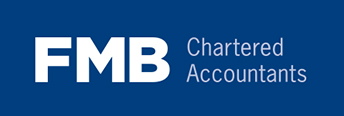The State took in a total of €44.7 billion in tax in the first six months of the year, up more than 9% on the same period last year, the latest exchequer returns show.
The strong performance was driven in particular by corporation tax, income tax and VAT and contributed to an exchequer surplus of €3.1 billion at the end of June.
Over the period, €12.2 billion in corporation tax was collected, up €1.6 billion or 15.4% on the same period of 2023.
In June alone, which is an important month for corporation tax, returns were up €1.6 billion or 38% on a year ago.
That performance was €1.2 billion or over 11% ahead of Department of Finance projections for this point of the year.
VAT receipts for the half year came to €11 billion, 6.2% up on the comparable months of last year.
Income taxes over the first six months of 2024 totalled €16.7 billion, up 7.5% on a year ago, driven by the large numbers of people at work.
Overall, tax receipts to the midway point of this year are 3.4% higher than had been predicted by the Department of Finance in the Budget.
When other sources of income are taken into account, gross revenue came in at €54.7 billion – an increase of €3.5 billion or 6.8% on the same time last year.
However, the data also shows that while tax receipts are running ahead of projections, so too is spending.
Total gross spending to the end of June was €47.1 billion.
That is €5.2 billion or 12.4% ahead of the same period last year and €1.5 billion or 3.3% more than had been expected at this time of the year.
The over run in spending comes despite warnings from both the Ministers of Finance and of Public Expenditure to other cabinet ministers in recent months to rein in expenditure.
The overall performance means that the exchequer ran a surplus of €3.1 billion to the end of June.
That compares to a surplus of €0.3 billion the same period last year, an improvement of €2.8 billion, although the annual comparison is distorted by the transfer of €4 billion to the National Reserve Fund last year.
Speaking to RTÉ News, the Minister for Finance said the exchequer performance had been really strong over the first six months of the year.
Jack Chambers said the surging tax take demonstrates the resilience of the labour market, the strength of consumer spending but also highlights the risks around the volatility of corporation tax.
“It speaks to why we have to have the Future Ireland Fund and the Infrastructure, Nature and Climate Fund, and why putting aside a signficant portion of excess corporation tax this year, next year and in future years is of fundamental importance,” he said.
Asked if the bumper tax receipts would pave the way for a pre-election giveaway budget, Mr Chambers said the Government has made it very clear that it wants to have a very sensible and careful budgetary policy.
He said that is how the Summer Economic Statement, which will be published on Tuesday and will outline the broad parameters of the budget, will be framed.
“We are also very clear in terms of our budgetary strategy that a sensible approach should be taken, we are getting back to more normal levels of inflation,” he said.
“That is why it will be a much tighter budget in the context of different expenditure demands that might come from ministers.”
“But we also want to protect families and households and strengthen living standards.”
The Minister for Public Expenditure Paschal Donohoe confirmed that the overspend in the Department of Health so far this year is €1.1bn.
The remainder of the €1.5bn overspend in the first six months of the year has come from the Department of Social Protection and the Department of Housing.
Minister Donohoe is holding meetings with the Minister for Health Stephen Donnelly in an effort to bring an overspend in the Department of Health under control.
Speaking following the publication of the exchequer returns for the first half of the year, Minister Donohoe said a “record amount of spending” had been allocated to Health.
But he said there was “growing evidence of an overspend” and the two ministers were working to “see how it can be dealt with”.
He added that he and Minister Donnelly were “close to finalising plans” on the issue.
Commenting on today’s figures, Tom Woods, Head of Tax at KPMG said corporate Ireland continues to drive Ireland’s strong economic growth.
“Corporation tax receipts for June are 38% or €1.6 billion up on the same month last year,” he said.
“June is traditionally the second largest month for corporation tax after November.
“Based on historical trends, corporation tax receipts in November are strong when June receipts are robust, so today’s figures bode well for the overall performance of corporation tax this year,” he added.
Mr Woods said income tax receipts have increased every month so far this year.
“This culminated in €1.2 billion more income tax collected in the first half of the year compared to last year due to higher wages and a record 2.7 million people in employment,” he said.
“Overall tax receipts grew by a healthy 9.3% or €3.8 billion for the first half of the year which is ahead of plan and should provide the Government with additional resources in Budget 2025 to address some of the challenges facing the country, such as housing, the green transition and competitiveness,” he added.
Article Source – Tax take for first half of year up 9%, exchequer figures show – RTE






